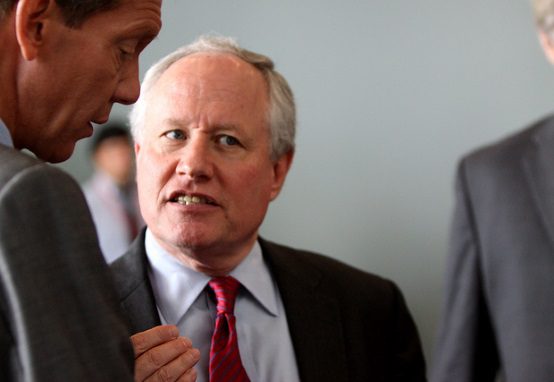Neoconservatism Died So Trump Could Live

Michael Lind argues that the Trump phenomenon is the result of neoconservatives’ abdication of responsibility. According to Lind, figures like Irving Kristol once defended (white) working class interests. But:
…in the last quarter century many of the blue collar voters who had been integrated into the FDR-to-LBJ Democrats and then became “Reagan Democrats” in the 1980s have had no intellectuals or policy wonks of their own, no think tanks and magazines that respected their values and interests. Organized labor, which once represented their interests, is nearly extinct outside of the public sector. The cultural left despises and vilifies working-class white men as privileged bigots, period. Neoliberal “New Democrats” focus on an audience of tech billionaires and Wall Street financiers. Conservatives praise the service of working-class men and women in uniform—but God forbid that the same heroic veterans should ask for a raise or a higher Social Security benefit or try to join a union or vote for paid family leave. Lacking any establishment advocates and sympathetic intellectuals, on left, right or center, many white working class Americans have therefore turned to demagogic outsiders like Trump. Where else are they to go?
Lind is too charitable to his former boss. Rather than a coherent movement, Kristol’s neoconservatism was an alliance of convenience based on the requirements of the Cold War. Neoconservative instincts in domestic and foreign policy were linked by the assumption that a broadly prosperous America would possess the moral resolve and economic resources to defeat Communism. With the Soviet challenge removed, neoconservatives lost the political glue that held them together.
That explains why neoconservatism in its original sense vanished almost overnight. After 1989, neoconservatives who were sincerely concerned about the working class, such as Nathan Glazer and Daniel Patrick Moynihan drifted back toward the liberal wing of the Democratic Party. Although they had provided intellectual ammunition to the DLC, these figures ended up on Clinton’s left.
Those whose main interest lay in international hegemony, on other other hand, drifted toward the conservative movement. Like Kristol himself, they were happy to trade their previous enthusiasm for a limited welfare state for the more reliable support of an interventionist foreign policy they found among Republicans.
There were a few exceptions to the bifurcation of neoconservatism. In 1997, David Brooks proposed a national greatness conservatism that would reunify liberals and hawks. But with Communism gone, Brooks was unable to explain the point of greatness. He acknowledged in his famous article that “It almost doesn’t matter what great task government sets for itself, as long as it does some tangible thing with energy and effectiveness.”
The greatness Trump invokes is something very different than this shallow appeal to energy for its own sake. Rather than the moral equivalent of war, it’s about apparently small things: meaningful work, economic stability, ordered communities. Neoconservatives defended these small things when they they could be used as weapons in a great ideological struggle. Trump treats them as desirable in themselves.
To be clear, I don’t think Trump’s signature combination of nasty rhetoric and self-proclaimed genius for negotiation are likely to secure these goods. But I understand why people are excited by the fact that he seems to take them seriously. Lind is right that conservatives who want to succeed in politics and policy need to learn how to talk about small things without stooping to Trump’s level. In doing that, we have to depart from the neoconservative example rather than imitating it.
Samuel Goldman is assistant professor of political science at The George Washington University.
Comments